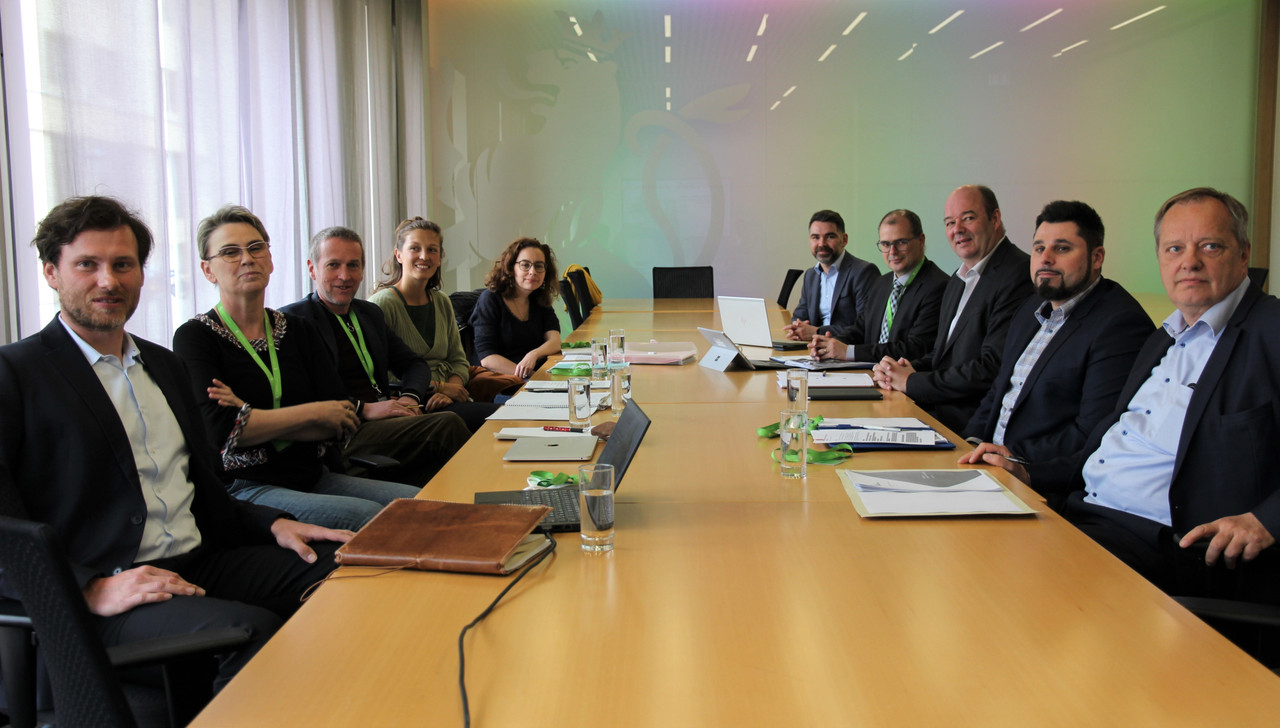Greenpeace and ASTM that Luxembourg’s pension fund, the FDC, must become more sustainable, slamming weak and unambitious investment criteria on environmental and human rights risks.
Representatives of the fund were given the report before its publication, but its president, Alain Reuter, told Delano that the FDC was not consulted as the document was being compiled. Greenpeace and ASTM commissioned Nextra Consulting, an environmental consulting group, to carry out the study.
The report criticised an exclusion list that blacklists companies from investment as “weak”. The list is updated twice a year and includes “very few” companies compared to the roughly 5,700 firms the FDC is invested in, Nextra said.
“In comparison to similar actors, the FDC’s exclusion list is, with more than 120 companies, one of the most extensive ones,” said Reuter in an email. The Luxembourg pension fund has a portfolio of around €22.9bn and has secured pension payments for four years, even if no more contributions were paid during that time. In comparison, Norway’s more than €1trn pension fund has blacklisted 152 companies in total.
In comparison to similar actors, the FDC’s exclusion list is, with more than 120 companies, one of the most extensive ones
The FDC’s list is based on input from Sustainalytics, a “world leader in ESG research and data,” said Reuter. “Sustainalytics’ screening service and processes cover human rights and their underlying norms, conventions and standards. Since different providers use different methodologies, exclusion lists among the industry are not always homogeneous.”
Sustainalytics screens more than 25,000 companies, according to its website. In addition to the exclusion list, 180 companies are under observation, Reuter said. “For these companies, an engagement process by Sustainalytics is ongoing. Depending on the outcome of this engagement process, these companies will either be classified as compliant or as in confirmed breach of one or more principles of the UN Global Compact. In the latter case, the company will be excluded from the FDC investment universe.”
The UN Global Compact is a non-binding initiative to encourage businesses worldwide to adopt sustainable and socially responsible policies.
Reforms not reflected
The FDC published its in December 2020, concluding that it is little exposed to climate financial risks. But the fund exceeds its carbon budget to keep the increase in the Earth’s warming below 2°C. Apportioned emissions are approximately 13% higher than the emissions allowed for a 2°C carbon balance over the period 2012 to 2025.
In response to the report, the fund last year said it plans for all of its sub-funds to be managed under environmental, social and governance (ESG) criteria by the end of 2023.
It said it would annually measure the carbon intensity of its open-ended investment company, or Sicav, assessing every three years whether it is aligned with the Paris Agreement target to limit global warming to 2°C above pre-industrial levels.
The FDC board also pledged to review sustainability criteria and increase the number of sustainable investment fund mandates as the current ones expire. In terms of passive fund management, the board decided to create a new mandate of around €500m that must be aligned with the 2°C Paris Agreement target.
“The recent reforms are not reflected in the given report,” said Reuter as the document is based on 2020 data. Greenpeace that the reform aren’t far-reaching enough.
The FDC is due to review its investment strategy for a five-year period starting 2023. Reuter said the fund “welcomes any exchange of view and critical discussions with actors like Greenpeace Luxembourg and ASTM” but that the fund “will continue to evolve its responsible investor policy step by step, at its own pace and independently of any external pressure.”
